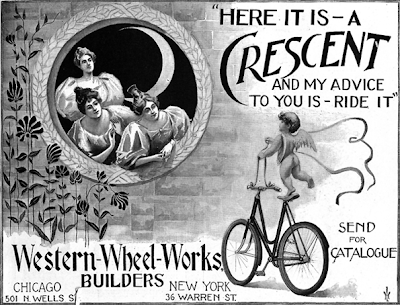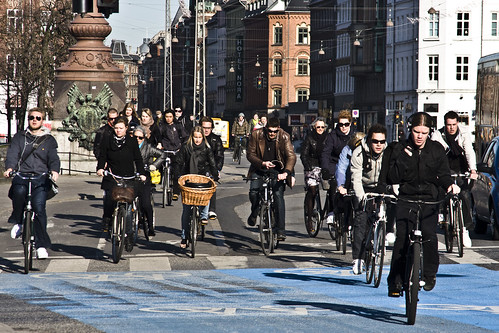
An Australian journalist has written a piece in which she voices displeasure at the distinct drawbacks of having to share the road/bike lanes with "lycra losers". 'Voicing displeasure' is probably a gross understatement.This woman says:
I just smile politely and totter along like a happy little tortoise, invariably catching up to the lycra brigade at the many sets of lights between home and office."
Reading the whole article is necessary to understand her point, her humour and her rage."It's all downhill for the lycra losers"
She has a personal aesthetic perspective about cycling clothes - she hates them and thinks they look ridiculous. She rages against the sub-cultural attitude of what she calls 'the lycra losers'. Basically, this woman in Melbourne just wishes she could ride her bicycle to work in peace. Enjoying the ride, as it were.She rips into the lycra crowd on her streets and bike lanes with venom. You can think what you like about her point of view - and I'm sure everyone who reads this has an opinion about it.What is interesting to note is that this is merely history repeating itself. Let's back pedal a bit.In the mid to late 1800's, two-wheeled contraptions appeared with a variety of names. Among them, the Ordinary or 'Penny Farthing'. They were an instant hit among the wealthy, who were the only ones who could afford them. The young men of these upper classes, not having much else to do with their time, quickly figured out that it was rollicking good fun to race the machines and prove themselves to be the most daring daredevil on the block. 'Breakneck' speed originates from the early days of the bicycle, in particular the Ordinary.For a couple of decades the bicycle was the domain of the wealthy, in particular the young men, and hardly anyone else.
“The safety bicycle fills a much-needed want for women in any station of life…it knows no class distinction, is within reach of all, and rich and poor alike have the opportunity of enjoying this popular and healthful exercise." "A Blessing for Women," The Bearings magazine, 5 September 1895.
All this popular embracing of a previously elitist hobby was not welcomed by the Dandies. There was a - mostly verbal - uprising against labourers and women who chose to ride. There was much mocking, spitting, threatening to be had. All over the world.Fortunately, the draw of the bicycle and its democratic values were too strong and it soon entered the public domain. Liberation for all.Back to Melbourne. The journalist writing this piece has an advantage over the women and labourers in the late 1800's. She need not bite her tongue like women in the past. She has the power of words and the media.But her rant against the elitist cycling sub-culture who have enjoyed, in many countries, a sound monopoly of two-wheeled enjoyment for at least three or four decades, is understandable. Her reaction is merely history repeating itself. You can take her tone and wit or leave it, but her reaction is important.Incidentally, here's another reaction, this time from San Francisco, referring to the 'hornets'.
There is so much chatter on the internet in the same vein. The slough of copycat sites emulating Copenhagen Cycle Chic is a testament to the fact that we are well on our way to redemocratising the bicycle. The Slow Bicycle Movement, as well. The Australian's article nevertheless underlines that while we have a tailwind, there is still a slight incline ahead.
Cycling is still growing, but marketing bicycle culture is paramount if we are reinvent our cities and place the bicycle back in its rightful place as BOTH a hobby pursuit and sport AND a feasible, acceptable and equal transport form for the masses.

Thanks to Mike Rubbo for the link.




